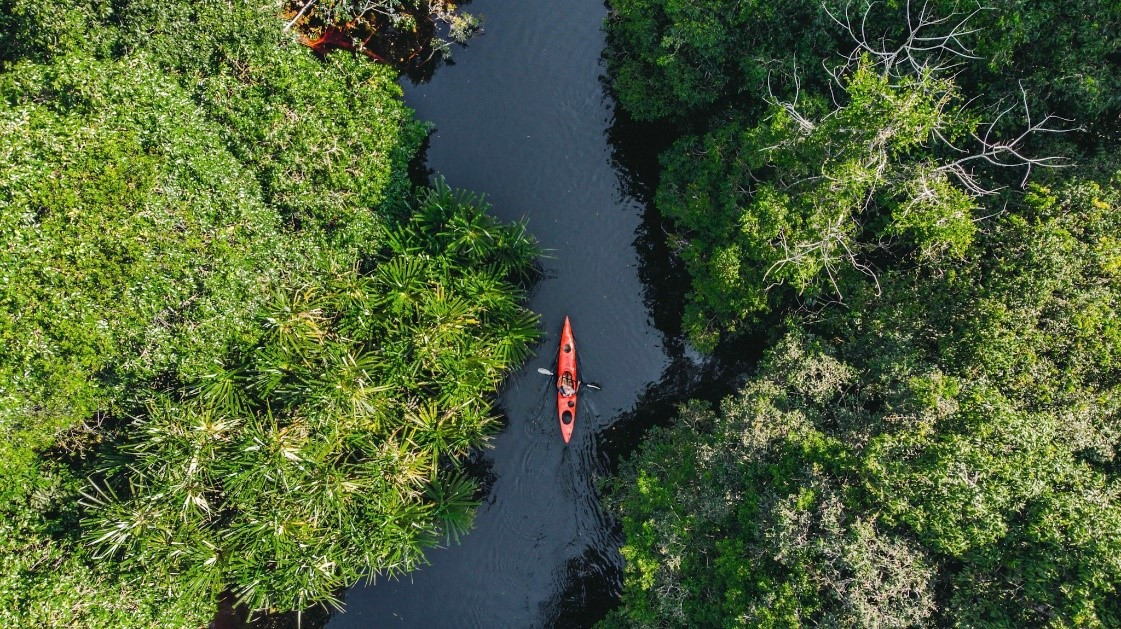Popular Reads
Top Results
Can't find what you're looking for?
View all search resultsPopular Reads
Top Results
Can't find what you're looking for?
View all search resultsRI receives $103m for environmental projects
Indonesia has received US$ 103.65 million of funding allocated for programs related to biodiversity, climate change and land degradation from the multilateral environmental fund Global Environment Facility.
Change text size
Gift Premium Articles
to Anyone
I
ndonesia has received US$103.65 million in funding allocated for programs related to biodiversity, climate change and land degradation from the multilateral environmental fund Global Environment Facility’s eighth replenishment cycle (GEF-8) for 2022-2026.
“I appreciate GEF for trusting Indonesia with the biggest allocation of STAR [System for Transparent Allocation of Resources] in the 8th cycle of GEF. I believe that this national dialogue is the correct step to ensure active participation of stakeholders in the early stages of the GEF-8 2022 - 2026 period,” Deputy Environment and Forestry Minister Alue Dohong said in a statement.
The disbursement was announced during the National Dialogue Indonesia (NDI) in Nusa Dua, Bali, on Monday, part of the Asia and Pacific Regional Workshop for GEF-8 on Jan. 10 to 12.
STAR is GEF’s performance-based framework that determines the number of resources a recipient country can access during a GEF replenishment period based on global environmental priorities and a country’s capacity, policies and practices relevant to the implementation of GEF projects and programs.
The GEF replenishment cycle is a four-year term that began with a pilot phase in 1991 and is now in its eighth cycle, in which 29 donor governments have pledged a total of $5.33 billion to GEF from 2022 to 2026, the highest replenishment on record.
Alue said that as host of the Group of 20 Summit last year that produced the G20 Bali Leaders’ Declaration, it was important for Indonesia to implement the declaration through national-level commitments, especially on environmental issues as the challenges from the COVID-19 pandemic such as food and energy crisis were not over.
“Indonesia is highly committed to practicing policies and programs that implement the goals of the conventions that we have ratified. We are optimistic that Indonesia will improve its environmental management. Indonesia has also implemented programs to conserve biodiversity, reduce land degradation, eliminate the use of ozone-damaging materials and control the impacts of climate change,” Alue said.
GEF CEO Carlos Manuel Rodriguez lauded Indonesia’s success in managing the funds it had received.
“I am satisfied that the implementation of GEF funds in Indonesia are based on evaluations not just from us, but also from other stakeholders. Indonesia is one of the five major countries that can give real impacts and show results,” Rodriguez said during the same occasion.
He went on to say that the NDI meeting was a good opportunity to share information and build an understanding of national priority programs, convention goals, GEF programs and the challenges of practicing environmental management.
Rodriguez said that dialogues would continue in various formats to improve the effectiveness and optimization of funding assistance through the GEF-8.
Avalanche of crises
Analysts have warned that an avalanche of immediate crises, from Russia's Ukraine war to soaring energy and food prices and worsening debt, are delaying action on major risks like climate change and threatening to fuel growing societal breakdown.
Meanwhile, trust in governments, and even agreement on basic facts, is waning in the face of disinformation, while cyber dangers are rising, making it more difficult to tackle threats from climate change to ecosystem breakdown and rising inequality and raising the risk that some will become unmanageable, they said.
"Wave after wave of crises is creating an incredibly challenging environment for leaders," said Saadia Zahidi, managing director of the World Economic Forum (WEF), which released its annual risk ranking on Jan.11, Reuters reported.
"In this extremely fragile environment, if there were to be another shock... it may be unmanageable," she warned.
Among a group of 1,200 policymakers, risk experts and business leaders surveyed by WEF, the global cost-of-living crisis topped global concerns for the coming two years, followed by worsening natural disasters and extreme weather linked to climate change.
But within a 10-year timeframe, environmental threats dominated worries, from failure to curb planet-warming emissions and adapt to climate change, to growing concerns about biodiversity loss and potential ecosystem collapse.
More than 70 percent of those surveyed said they saw efforts to curb climate change as "ineffective", according to John Scott, head of sustainability risk at Zurich Insurance Group, which partnered on the report with risk strategy group Marsh McLennan.
When it comes to tackling global warming, "we really just are not doing enough," he said, noting that in the current climate of compounding immediate crises, "quite frankly I think that's unlikely to change in the near future."
As shorter-term crises claim a growing share of budgets and political focus, "we are living in a world where what is scientifically necessary and what is politically expedient do not match," he warned.










